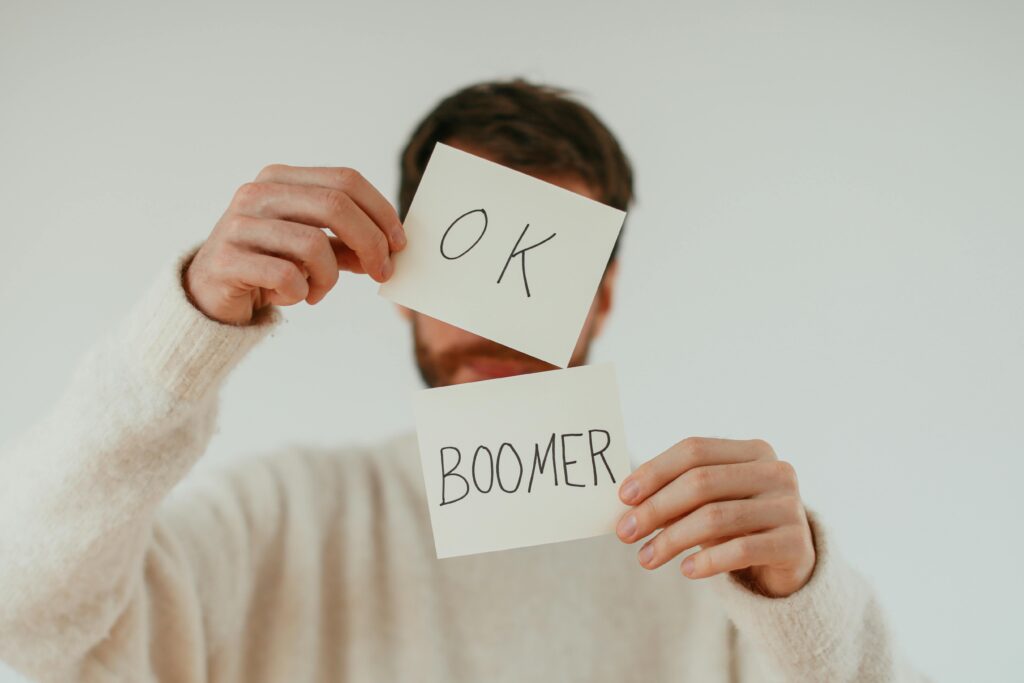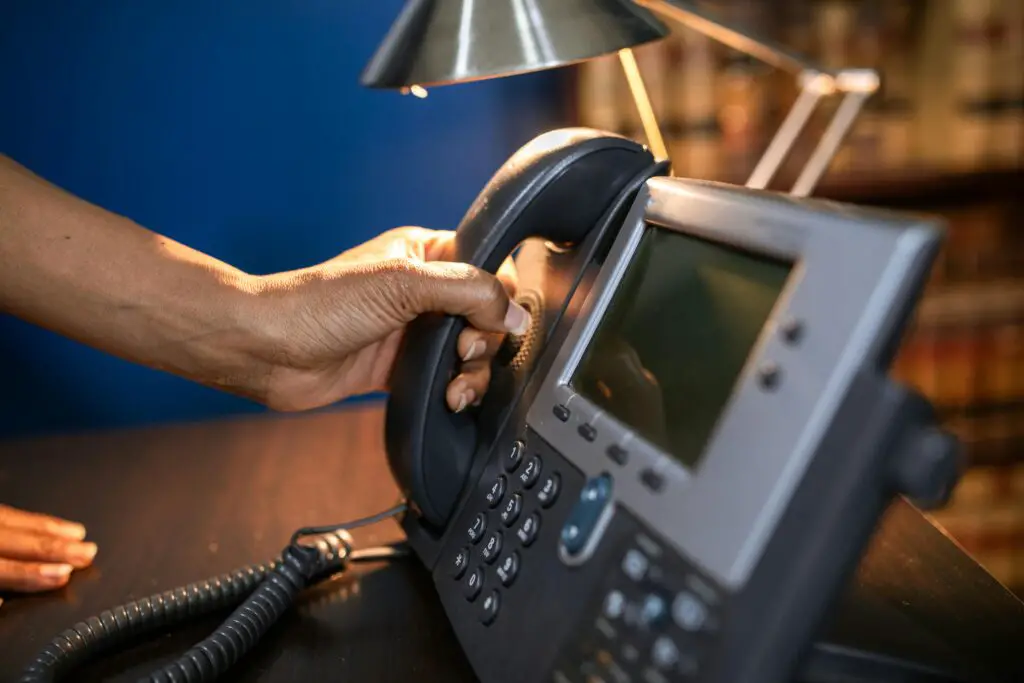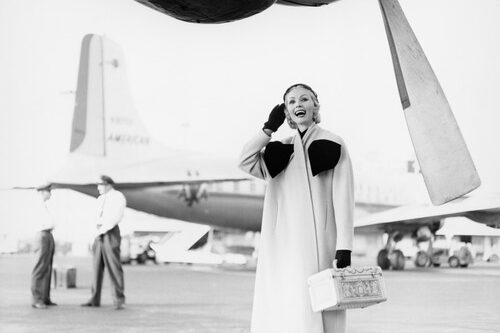1. Sticking With One Job for Life

Boomers grew up with the idea that if you landed a good job, you stayed there until retirement. Loyalty to a company was a badge of honor, and switching jobs frequently was seen as a red flag. Many of them worked at the same place for decades, collecting pensions and climbing the corporate ladder. Stability was the goal, and the thought of quitting without another job lined up was almost unthinkable says Fortune.
Younger generations see things differently. With job markets constantly shifting and companies offering fewer long-term benefits, staying in one place isn’t always the smartest move. Many prioritize work-life balance, career growth, and personal happiness over loyalty. If a job doesn’t serve them anymore, they’re not afraid to move on.
2. Paying With Cash

Boomers still feel a sense of security when handing over physical cash for their purchases. They grew up in a time when credit cards weren’t as common, and cash was king. Even today, many prefer using paper money instead of swiping or tapping a card. They also believe paying with cash helps them stay on budget and avoid debt says MSN.
Younger generations, on the other hand, hardly ever carry cash. Digital wallets, Venmo, and Apple Pay have made it easy to go completely cashless. Many people don’t even think twice about using a card for a $2 coffee. To them, cash feels outdated and inconvenient adds AOL.
3. Writing Checks for Bills

Boomers still like the reliability of writing a check and mailing it off for their bills. It’s what they’ve always done, and they trust the system. Many feel that online payments are risky or that automation could cause them to lose control of their finances. Writing a check and balancing a checkbook gives them peace of mind shares MSN.
Younger people find this old-school method baffling. Everything is automated now, and hardly anyone under 50 even owns a checkbook. Online banking allows them to pay bills in seconds, often with just a fingerprint or face scan. The idea of writing out a check, putting it in an envelope, and mailing it seems like unnecessary effort says BuzzFeed.
4. Calling Instead of Texting

For boomers, a phone call is the gold standard of communication. If they need to talk to someone, they pick up the phone and dial. It’s direct, personal, and allows for real-time conversation. Many see texting as impersonal or even lazy.
Younger generations prefer texting, emails, or even voice notes. A phone call often feels intrusive or unnecessary when a quick text will do. They appreciate the ability to respond when it’s convenient, without the pressure of an immediate reply. To them, calls are reserved for emergencies or special occasions.
5. Expecting a Handwritten Thank-You Note

Boomers were raised to believe that a handwritten thank-you note was the proper way to show appreciation. Whether for a gift, an interview, or a kind gesture, putting pen to paper was expected. It was a sign of respect and good manners. Even today, many boomers feel disappointed if they don’t receive one.
Younger generations express gratitude in different ways. A heartfelt text, a phone call, or even a quick video message feels just as meaningful. They don’t see the need to buy stationery, find a stamp, and mail a letter. To them, the thought behind the message matters more than the format.
6. Keeping a Landline Phone

Boomers still see value in having a landline. It’s what they’ve always had, and many believe it’s more reliable than a cell phone. Some worry about emergencies or power outages, thinking a landline will always be their backup. Others just like the familiarity of answering a “real” phone.
Younger generations see landlines as completely unnecessary. Everyone has a cell phone, and that’s all they need. The idea of paying for a phone that never leaves the house seems like a waste of money. To them, a landline is just another relic of the past.
7. Wearing a Full Outfit to the Airport

Boomers were raised in a time when air travel was considered special. People dressed up for flights, wearing suits, dresses, and polished shoes. Looking presentable was part of the experience, and sweatpants were unheard of. Many still hold onto this mindset today.
Younger travelers prioritize comfort over appearance. With long security lines and cramped seats, they want to be as cozy as possible. Leggings, hoodies, and slip-on shoes are the go-to travel outfit. To them, dressing up for a flight feels unnecessary and impractical.
8. Relying on Paper Maps

Boomers remember a time when road trips meant unfolding a massive paper map on the dashboard. They took pride in knowing how to read one and navigate without technology. Many still keep an atlas in their car, just in case. There’s a sense of nostalgia and self-reliance tied to it.
Younger generations can’t imagine driving without GPS. They rely on Google Maps, Waze, or Apple Maps to guide them every step of the way. The idea of pulling over to figure out a route manually seems like extra work. To them, technology has made maps obsolete.
9. Expecting Face-to-Face Customer Service

Boomers prefer talking to a real person when handling business. Whether it’s at a bank, a store, or a utility company, they want face-to-face interaction. They trust people more than automated systems and often feel frustrated when forced to use self-checkouts or phone menus.
Younger generations are fine with self-service options. Chatbots, mobile apps, and online portals make everything faster and more convenient. They don’t want to wait in line when they can solve the issue with a few taps on their phone. To them, human interaction isn’t always necessary.
10. Using Physical Calendars

Boomers still like the feeling of writing things down on a paper calendar. Whether it’s a wall calendar or a daily planner, they trust their handwritten notes. Many believe it helps them remember things better and keeps them more organized. There’s also a nostalgic charm to flipping through pages.
Younger generations prefer digital calendars. Google Calendar and phone apps send reminders, sync across devices, and adjust automatically. They love the convenience of voice-activated scheduling and shared calendars. To them, a paper planner just takes up space.
11. Watching Cable TV Live

Boomers are used to watching shows as they air. They plan their evenings around TV schedules and don’t mind waiting a week for a new episode. Many still subscribe to cable because it’s familiar and includes local news. Flipping through channels is part of their routine.
Younger generations stream everything. Netflix, Hulu, and YouTube allow them to watch what they want, when they want. The idea of sitting through commercials or waiting for a show to air seems outdated. To them, cable is just an unnecessary expense.
12. Saving Everything “Just in Case”

Boomers have a hard time letting go of things. Whether it’s old clothes, furniture, or paperwork, they believe it might be useful someday. Many were raised to be frugal and see throwing things away as wasteful. Decluttering doesn’t come naturally to them.
Younger generations embrace minimalism. They don’t want to be weighed down by stuff they don’t use. With digital storage and easy access to affordable replacements, they don’t feel the need to keep everything. To them, less is more.
13. Insisting on a Voicemail Greeting

Boomers still leave detailed voicemail messages. They expect people to listen and call back. Many feel a voicemail greeting is a sign of professionalism and politeness. Even if they don’t get a response, they appreciate the effort.
Younger generations rarely check voicemails. If a call goes unanswered, they assume a text will follow. Many don’t even set up their voicemail inboxes. To them, voice messages are an outdated hassle.
14. Using “Good China” for Special Occasions

Boomers often have a set of fancy dishes reserved for holidays and guests. These dishes, often passed down, symbolize tradition and formality. Many wouldn’t dream of using them for everyday meals. They see them as too special for daily use.
Younger generations see no point in saving dishes for rare occasions. They prefer using what they have and keeping things simple. Storing fragile plates they barely touch seems impractical. To them, every day is worth using the “good” dishes.
15. Expecting Kids to Move Out at 18

Boomers were often expected to become independent right after high school. Moving out was a rite of passage, and staying home into adulthood was rare. They see it as a sign of responsibility and maturity. Many still believe young adults should be on their own by 18.
Younger generations face a different reality. With rising costs and economic instability, living at home longer is often necessary. Many young adults prioritize financial stability over rushing into independence. To them, staying home longer is just practical.
